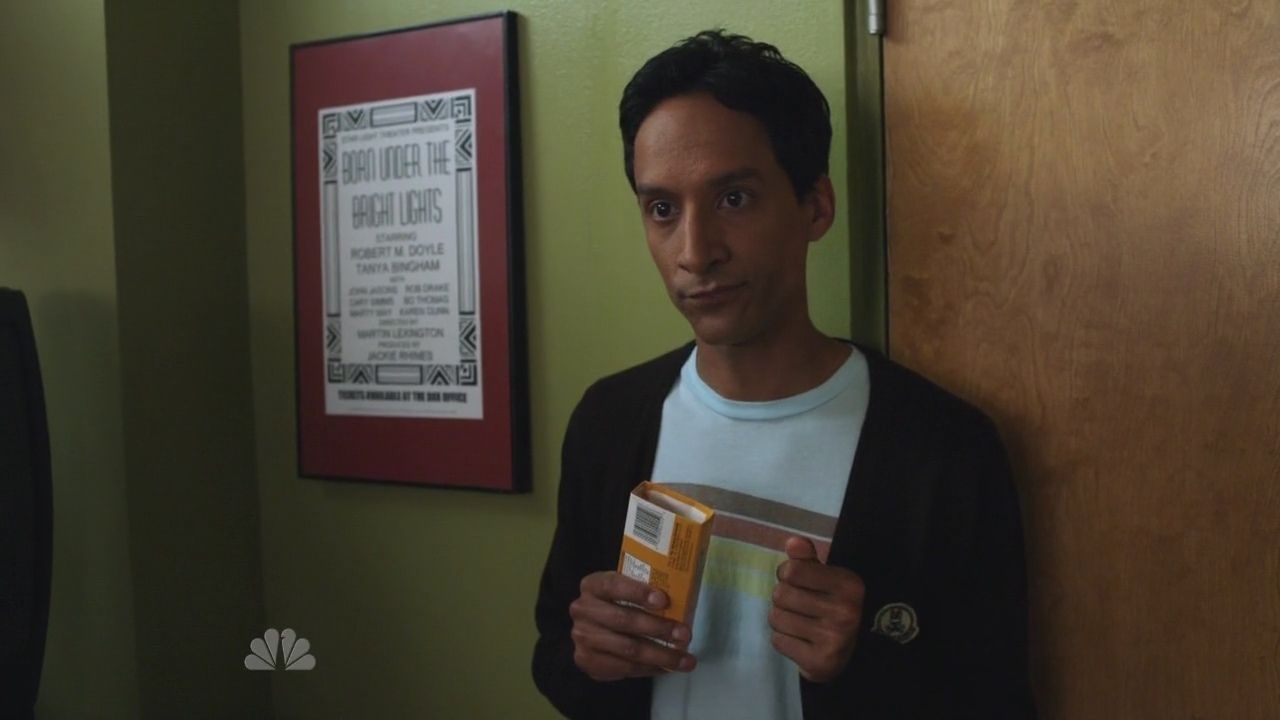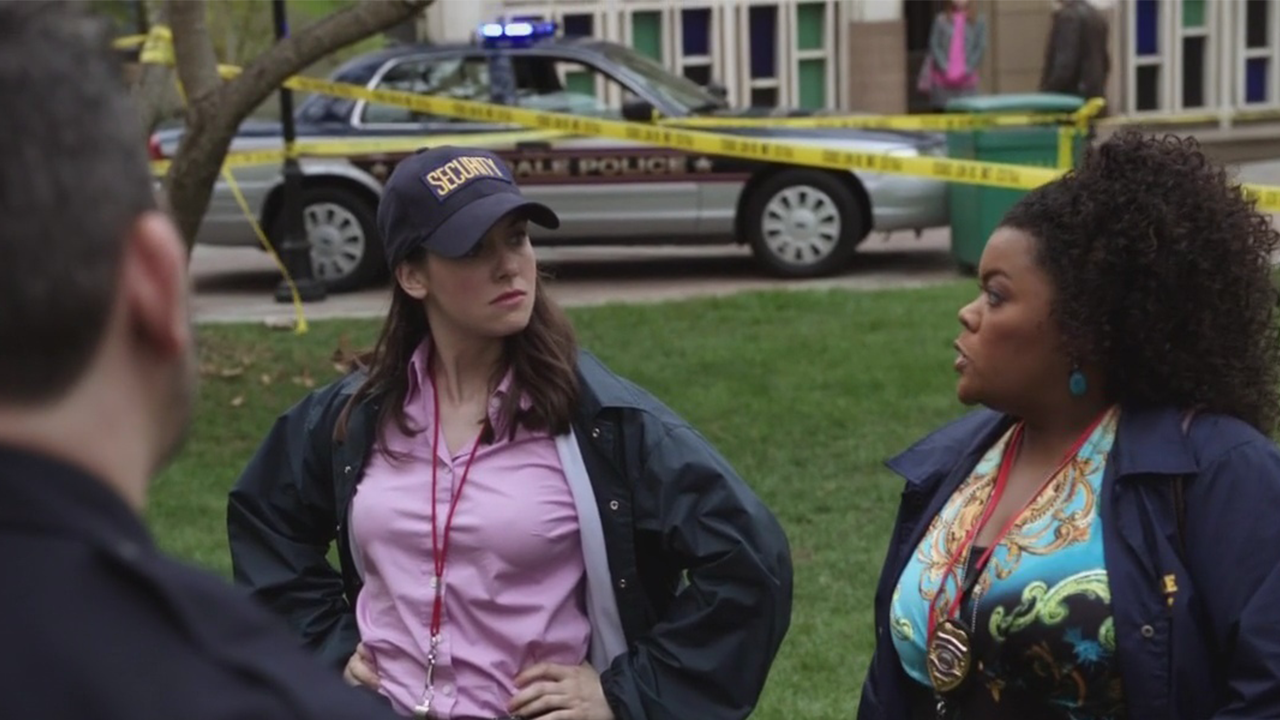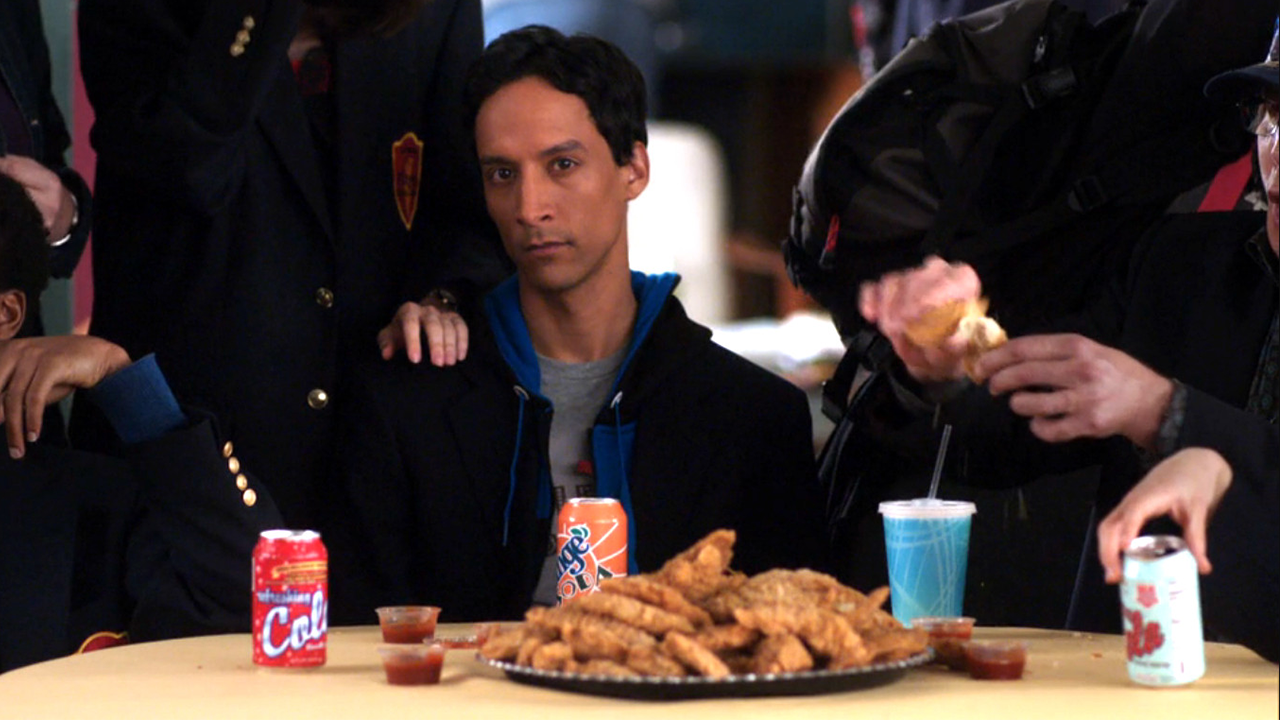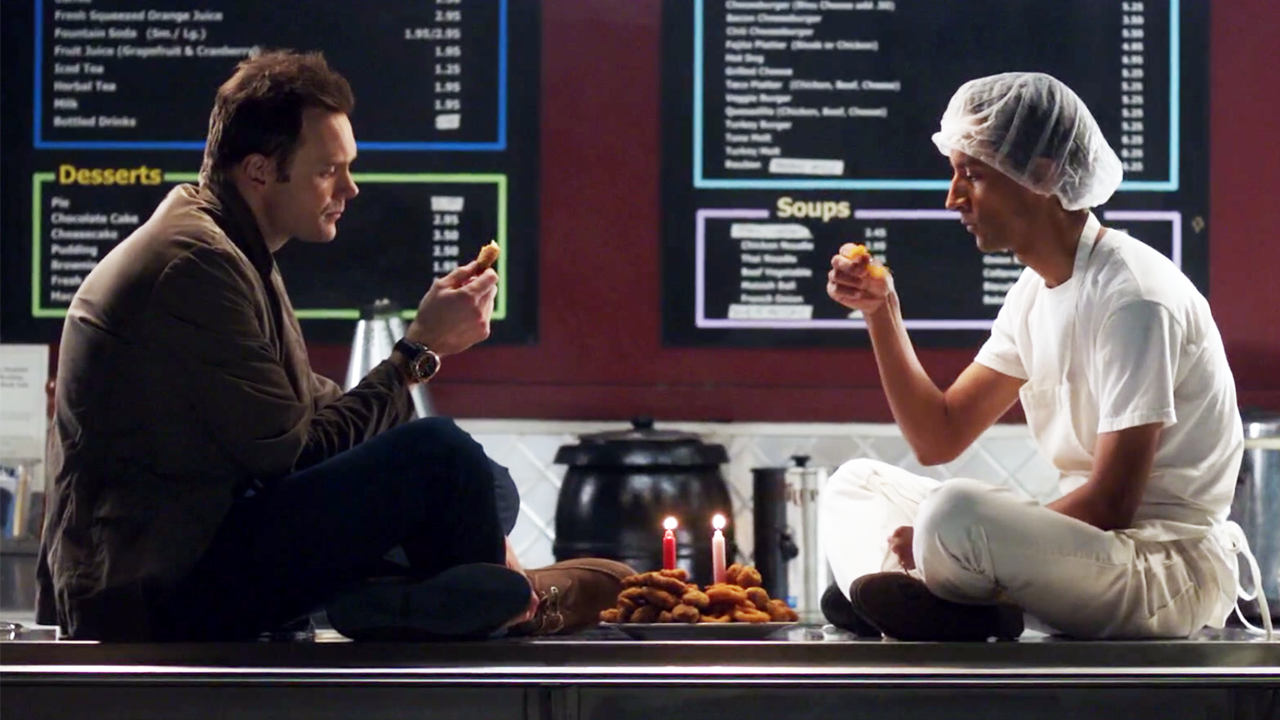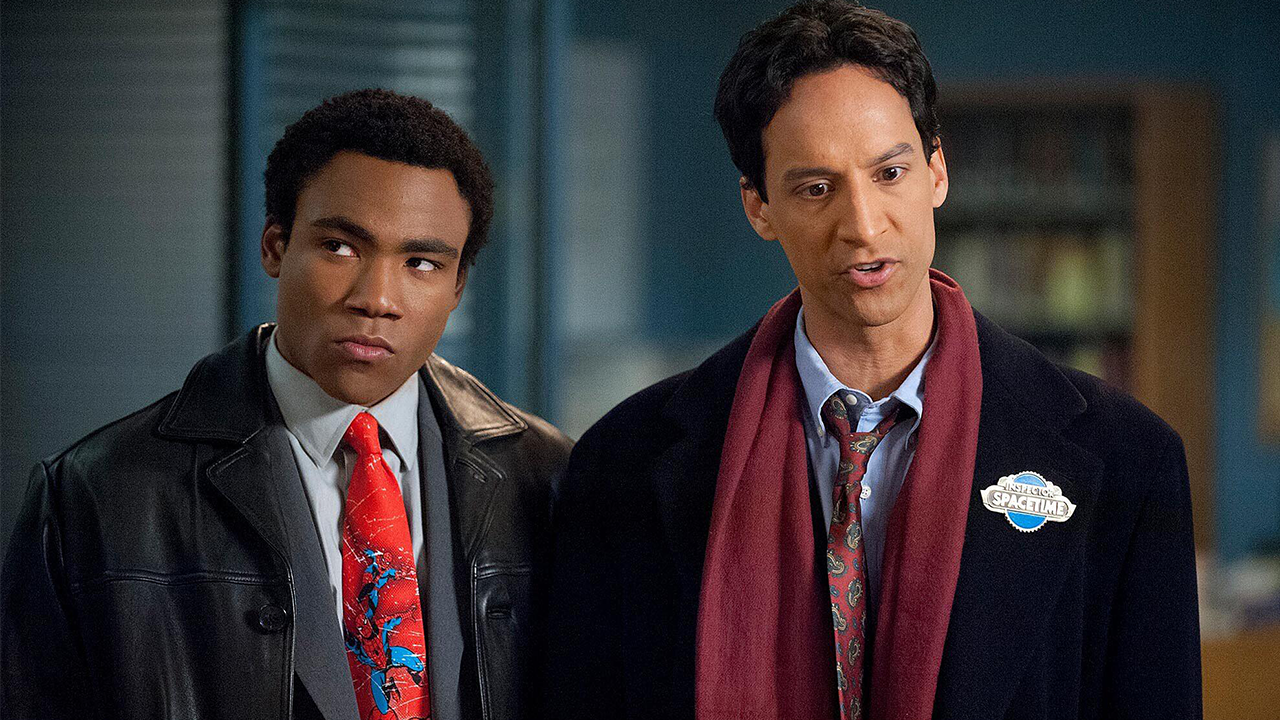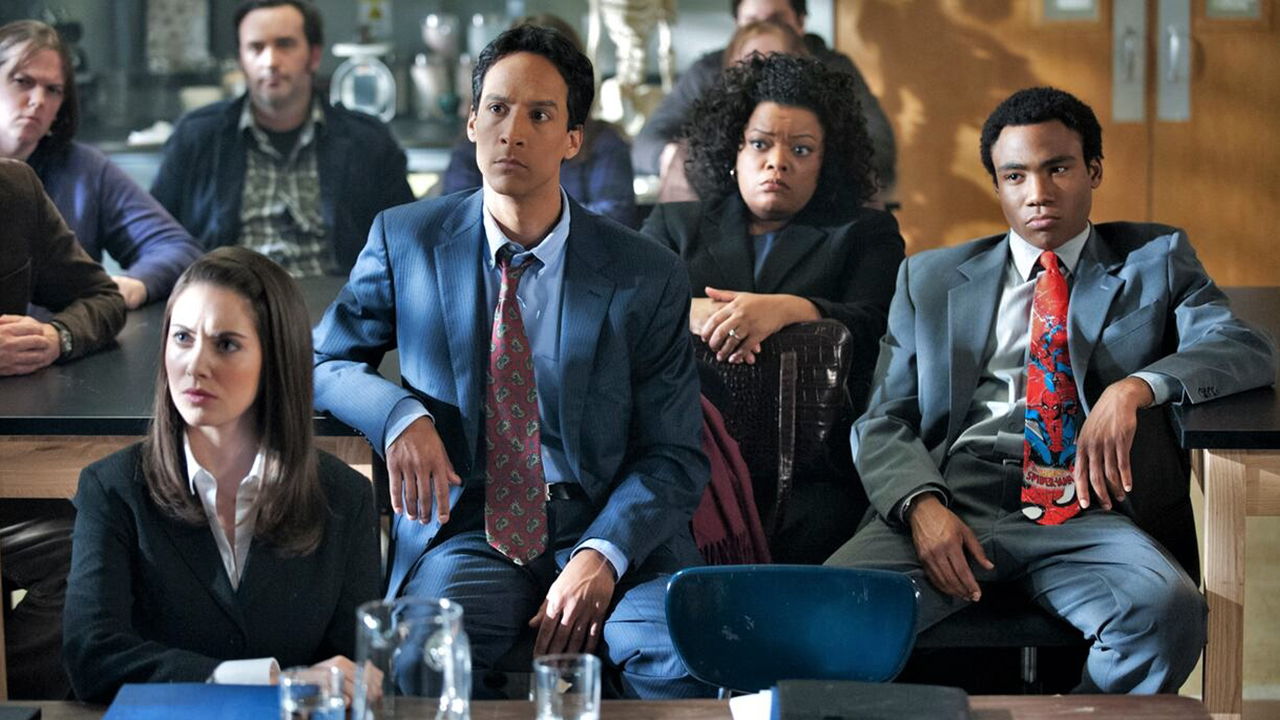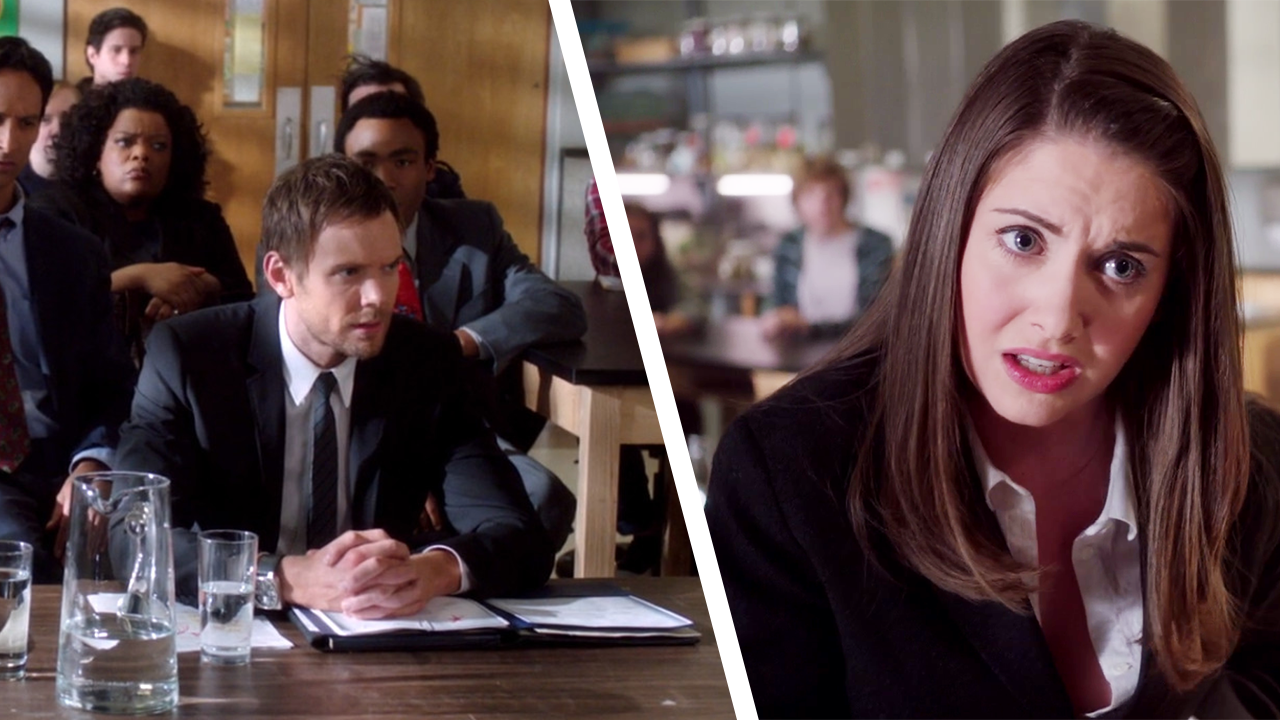No, you don't have to be a total nerd to enjoy the Community series, but it does help. What is community? It's a superb show, one which plays around with genre in order to develop its mish-mashed group of endearing losers at a community college, and its writing and themes reward viewers who dig down and explore them in a lot of detail.
One staple of the NBC (and Yahoo! Screen) sitcom is its absolute dedication to respecting the emotional nuance of its characters no matter how absurd a situation they find themselves in. Dan Harmon has talked about this extensively, and clearly follows the same methodology in Rick and Morty, telling "real stories [...] in a wacky environment," as he described in an interview with Salon, "makes a statement if you do it in such profound contrast."
With Community, Harmon takes the seemingly quaint setting of Greendale Community College and elevates it into magical realms of absurdity and awesomeness. Nowhere actually holds college-wide paintball tournaments, and no government-funded place of learning has a semester class on ‘Seizing the Day,’ and yet we believe in Greendale because its inhabitants remain grounded, or at least emotionally consistent. This juxtaposition allows the show to have as much fun as possible while still telling compelling and relatable stories. As Harmon says in the same interview, “The emotional gravity can tether you, and reality can be a balloon. It's pretty nuts.”
The episodes where Community has the most fun are the ones where the community college, as Abed puts it, “erupts into a flawless, postmodern homage, […] mischaracterized by the ignorant as parody." However, the homage episodes are also moments where we see the reality of our characters pushed further than ever. Pulling in both directions as hard as it can, Community utilizes the language of cinema and pop culture to show the audience new sides of its beloved group of misfits and explore their interpersonal psychological dynamics. There are dozens of examples to choose from, but we’ve decided to take a deep dive into three moments where Community used homage to deepen the lives of its characters.
Enemies to Buddy Cops
Season 1, Episode 20, The Science of Illusion
It’s April Fool’s Day at Greendale Community College! The Dean announces that students can volunteer as temporary security during “times of heightened shenanigans,” which Annie and Shirley immediately do. This initiates a loving homage to the ‘buddy cop’ genre that blew up in the 80s with classics such as 48 Hrs, Beverly Hills Cop, and the Mel Gibson vehicle Lethal Weapon. Abed’s cable is out, so in the absence of television, he decides to tag along with the girls. Luckily for us, Abed is a cinematic shaman who often calls attention to the narrative machinery working underneath the show’s surface.
As Shirley and Annie become competitive over who is ‘the badass’ of the duo, Abed explains to the dean (and the audience) that buddy cop movies usually pair together a straight-edged stickler and a loose renegade. However, this pairing is “a twist on a classic formula” because the characters have equal claim to both roles. Annie (Alison Brie) is a committed rule-follower but hates losing and has a potent irrational streak. Shirley, meanwhile, is a Christian housewife with a violent past and a suspicious amount of street smarts. In other words, these two sitcom characters are more complex and realistic than your average eighties buddy cops, something we learn from the friction generated by an attempt to squeeze them into those stereotypical genre roles.
The Science of Illusion is a perfect example of Community letting viewers in on its creative process. This is what being ‘meta’ means, that infamous word which has come to define Dan Harmon’s style. Hearing Shirley and Annie argue about their own archetypes lets us feel like we’re in the writers’ room, watching the buddy cop genre be broken down into its constituent parts.
Fittingly, then, we learn that buddy cop movies all require the scene where they’re yelled at and kicked off the force, which then makes them put aside their differences and work together. Abed takes charge, expertly imitates the archetype of the 'angry Black police chief' character trope (see: Frank McRae in 48 Hours or Ice Cube in 21 Jump Street) and gives the girls the final push they need to become a crime-fighting duo.
Mafia, Mobsters, and Meaning ... and Chicken
Season 1, Episode 21, Contemporary American Poultry
The character of Abed (Danny Pudi) in Community is far more than just a collection of meta jokes and pop-culture references. His ability to point out narrative tropes in the show is a fully justified, integral, totally non-meta part of his character. Abed, in short, has trouble with intuitively understanding people and their emotional complexities. Growing up unable to decipher the unspoken social codes of the playground, he turned to the “logic, rules, structure” of TV and film for a method to understand why people act the way they do. The closer a real-life situation is to a film, the easier it is for Abed to participate and thrive.
So, when Jeff tells the group that they need to take control of the community college cafeteria’s corrupt fried chicken ring, Abed recognizes that this premise parallels a typical mafia movie and leans all the way in. As Abed takes control of the narrative, he also takes control of the show, making it freeze-frame and adding his own voiceover as if he’s Ray Liotta in Martin Scorsese’s Goodfellas.
Meanwhile, Jeff — accustomed to power and control over the group — becomes a jealous mess. With Abed pulling the strings, Jeff is displaced and eventually disowned by his study group — his family, read in mobster tones — who shut the door on him à la the final scene in The Godfather. It’s almost as heartbreaking as the episode’s dénouement, in which it becomes clear that Abed was clinging to his community college chicken empire / mafia movie homage because it provided him a structure through which he could reliably understand and interact with the rest of the world.
For a moment, Abed could cast off his reliance on film and TV to understand people; he wasn’t an outsider because “everybody’s speaking the same language – chicken”. But people are getting bored with chicken, and Abed is slowly pushed “back to watching from the outside... for now.” The episode ends on a positive note, with Abed optimistic about what he can learn from Jeff and his group, who he’s already managed to connect with better than most people ever will.
Law, Order, and Ethics
Season 3, Episode 17, Basic Lupine Urology
From its very first episode, Community grapples with the concept that there are no fundamental ethical truths. Jeff Winger (Joel McHale) made his living from exploiting that very belief. “If I talk long enough, I can make anything right or wrong,” he boasts in the pilot, having arrived at Greendale Community College hoping to lie and cheat his way through the degree.
He’s challenged by Professor Duncan, who sagely quips that “the average person has a harder time saying 'booyah' to moral relativism”, and quickly learns that he can’t get by on his old, shady tricks. The rest of the series sees Jeff slowly admitting that there is a right and a wrong and that he wants to do the right thing, no matter how tempting it is to do the opposite.
Annie Edison, on the other hand, starts her life on the show as idealistic and deeply committed to the idea of objective truth and justice. Over the series, we see her skew the other way, becoming more jaded and comfortable with the moral gray areas. These arcs come to blows in season three’s crime drama episode, Basic Lupine Urology (a pun episode title referencing Dick Wolf, Law & Order creator).
The community college study group is growing a yam for biology class. Early one morning, they discover that their yam has been dropped and smushed beyond recognition, ruining their project and costing them an A grade. Naturally, this infuriates Annie, who is certain that their yam was murdered and insists that they catch the sinister smusher.
A surprisingly competent investigation ensues, and the group are allowed to put their classmate Todd on trial, having determined him to be the murderer. First to examine Todd is his uncle (and lawyer, I guess), Colonel Archwood, who defends his nephew's character and paints him as a selfless paragon of virtue by having Todd recount stories of his heroic military service. Next up, Annie struts across the courtroom (or, classroom) and enters full-on prosecutor mode. She uses Todd’s selflessness to pressure him into confessing, calling on his sense of honor and justice and begging him, in a stunning, eyelash-fluttering performance, to "diffuse the I.E.D. of dishonesty." He cracks and admits, through tears, that it was an accident. Annie, unsympathetic, does a victory dance.
Following along, Jeff realizes that this smart, well-meaning kid has been poisoned by the amoral environment he's exposed her to. Jeff has exploited loopholes and engaged in questionable detective work all episode, drawing on his destructive career as a lawyer, and Annie has taken his Machiavellian behavior to mean that they can do anything to get what they want. She wants an A, and she'll make a man cry and confess to a crime he didn't commit to get it.
Seeing his old behaviors mirrored in Annie, Jeff decides to stand up and save Todd from prosecution (or, detention); it's a far cry from his once-corrupt days as an amoral lawyer. It's this moment that shows how far our characters have come in three seasons, how much they've grown and influenced each other, and how much they depend on each other to stay on the right path. Genre and playful deconstruction of TV tropes allowed the characters to move toward growth and development.
Community was born out of Dan Harmon’s experience at community college, where he reluctantly joined a study group and ended up having a personal epiphany. He realized that, beyond all logic and reason, it simply feels good to work together and help someone out. When it comes to the questions of ethics and morality, it's Jeff who finally expresses this epiphany of Dan’s, “because the truth is, I'm lying when I say there is no truth. The truth is [...] the pathetically, stupidly, inconveniently obvious truth is, helping only ourselves is bad and helping each other is good.” Try getting a lesson that wholesome from an episode of Law & Order.


